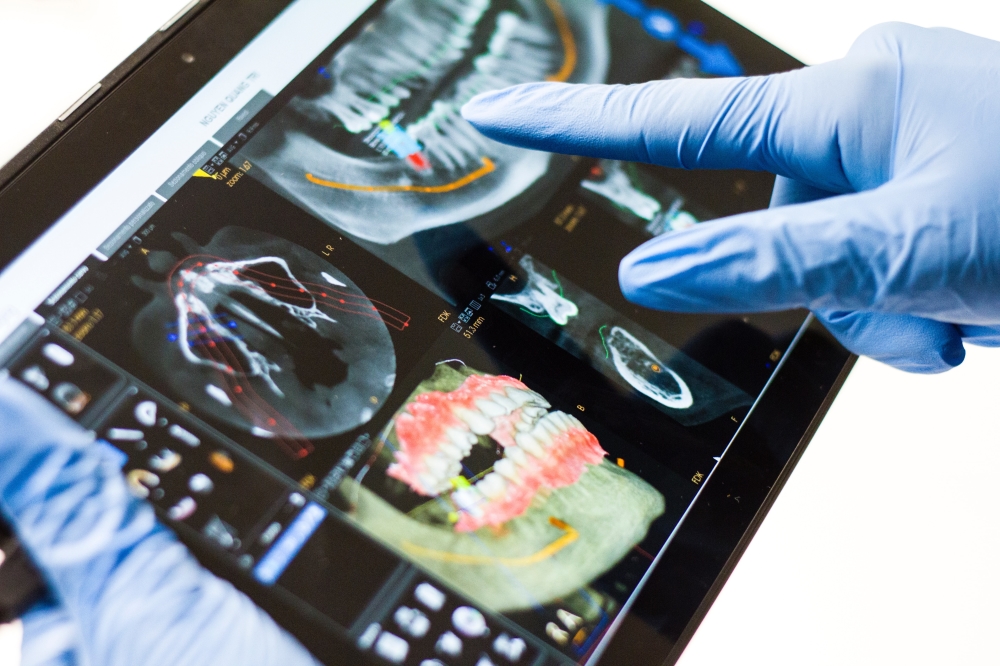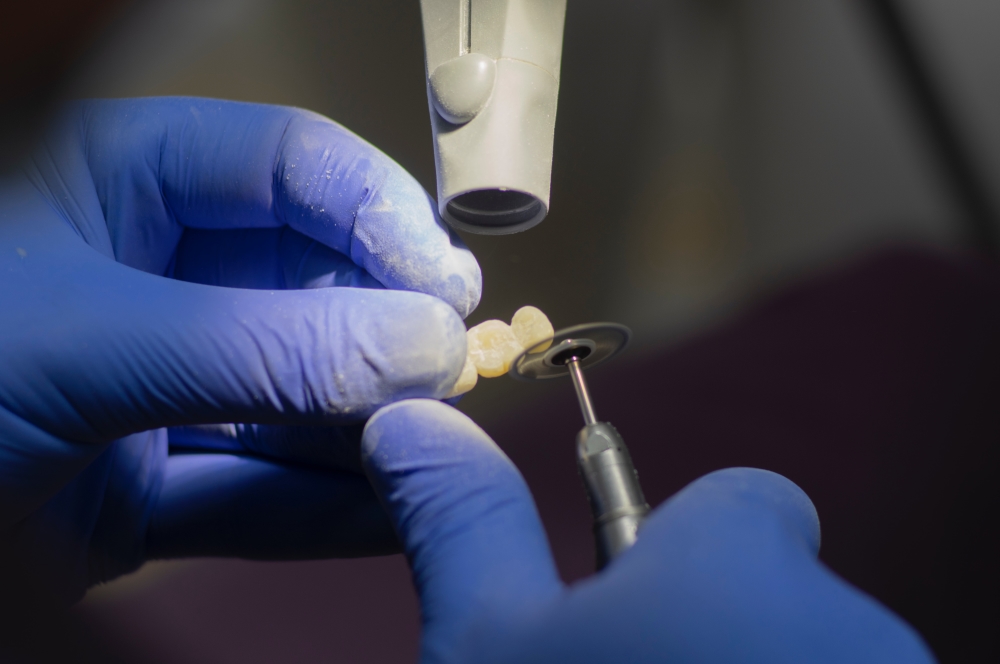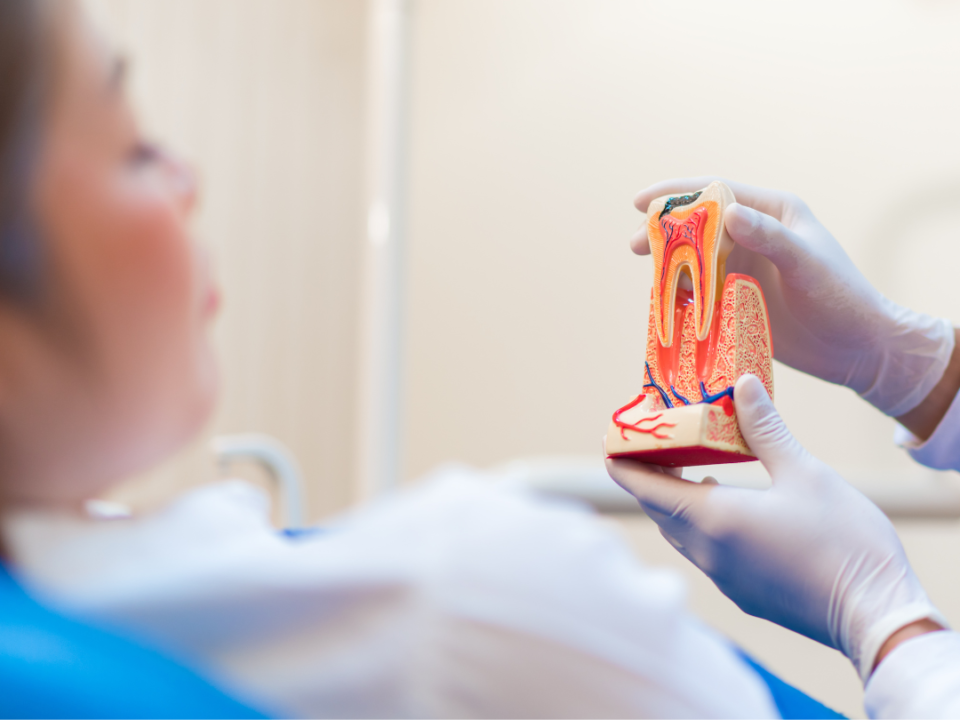
Can a Root Canal Fail?
August 30, 2021
Can You Get a Root Canal While Pregnant?
October 23, 2021
Can a Root Canal Fail?
August 30, 2021
Can You Get a Root Canal While Pregnant?
October 23, 2021Do you need a crown after a root canal? Many of our patients at Innovative Endodontics ask this question. The answer to this is not a straight yes or no. In fact, some people may require one while others don’t. Find out the factors that could determine whether you need a crown after a root canal.
Why a Root Canal Might Require a Crown After the Procedure?
A root canal procedure is required when your tooth’s interior becomes exposed to bacteria. Once bacteria invade the pulp and canals of your tooth, it causes inflammation which can lead to discomfort. Unfortunately, the body is not able to combat these bacteria and antibiotics cannot resolve the issue either. Root canal therapy cleans the inside of the tooth and resolves the source of inflammation, allowing your body to heal and symptoms to resolve.
It is extremely important to place a permanent restoration on the tooth following root canal treatment to both seal the tooth from a re-invasion of bacteria as well as protect the integrity of the tooth and prevent a fracture of the tooth. A crown is a dental restoration that covers the entire tooth surface and provides the seal and protection needed for a good long-term prognosis.
Do You Need a Crown After a Root Canal?
Not everyone requires a crown after a root canal. Several factors determine the need for a crown. The most important factor is the location of the tooth as well as the amount of remaining tooth structure.
Teeth have different functions in the mouth. For instance, the incisors and canines in the front of the mouth make it easier to bite and tear food. However, these teeth do not do the majority of chewing or experience the same stresses that molars in the back do. Consequently, these front teeth may not require crowns when getting root canals in them.
Oftentimes, a front tooth can have a filling placed after a root canal and not need a crown. However, if there is a lot of missing tooth structure, a crown may be a better choice. Following a root canal, some teeth, especially those with cracks or previous dental treatments, may need crowns to reinforce them. Even incisors or canines could need crowns to provide extra support or improve their aesthetics.
When in doubt, talk to your endodontist or dentist about their recommendations for your case. They will evaluate your teeth and help you find the best option for your dental health and appearance.
When You Might Not Need a Crown
Some people might not need crowns after a root canal if they had a canine or incisor treated. These front teeth don’t require a lot of strength due to their functions in the mouth. Consequently, they are less likely to break or crack. For these teeth, a filling may suffice to keep them from becoming reinfected.
If you need a root canal on a tooth that already has a crown in place, the endodontist can perform the root canal through the crown by making a small hole in the crown. If there is not a concern about the condition of the current crown and decay is not noted during the root canal treatment, patients can often keep the same crown and not require a new one. All that would be required in this case is the placement of a small filling in the hole that was made to complete the root canal treatment.
When You Need a Crown After a Root Canal
Do you often wonder that do you need a crown after a root canal? The molars in the back of the mouth will almost always require a crown after root canal treatment. These teeth bite and chew food constantly and undergo hundreds of pounds of pressure every day. Therefore, they have the entire bite force placed on them which could put the tooth at risk of a future fracture. The crown provides integrity and protection.
If getting a root canal requires an additional trip to your general dentist after the procedure, make sure to keep the appointment to prevent complications following the root canal treatment.
Why Getting a Crown After a Root Canal When Recommended Is Important
If your endodontist recommends that you make an appointment to get a crown, don’t delay. The placement of the crown promptly can provide you with many benefits.
First, the temporary filling that is placed after the root canal is not meant to be in the tooth for a long time. This temporary filling could fall out or not stand up to regular chewing forces. Therefore, you should see your general dentist as expediently as possible after your root canal and should avoid hard and sticky foods while in your temporary filling. It would be best to wait until after getting the crown placed before fully returning to your normal diet. Without the crown in place, the tooth is at risk for fracturing which would result in the loss of the tooth.
Second, if you get a crown, you have a sealed tooth that is unlikely to become reinfected. The crown covers the tooth to protect it. Plus, if the crown remains intact and you take care of your teeth, you can protect from bacteria re-entering the tooth and therefore avoid the need to get endodontic retreatment on the tooth due to a secondary infection.
Third, getting a crown placed as soon as possible reduces the chances of the temporary filling falling out, which might require you to return for retreatment of the tooth.
While not all patients require crowns after a root canal, those who do should follow their endodontist’s recommendations for getting a crown as soon as they can.
Contact Us at Innovative Endodontics to Find Out More About Root Canal Treatment
So, do you need a crown after a root canal? Your endodontist will need to consider your specific circumstances. Contact us at Innovative Endodontics to find out more about how we take steps to change the reputation of the root canal. We serve patients throughout the North Charleston, SC area and can help you. If you need a referral for a visit, you can find information for your dentist on our site. Let us become your source for getting relief from toothaches and saving your tooth.




